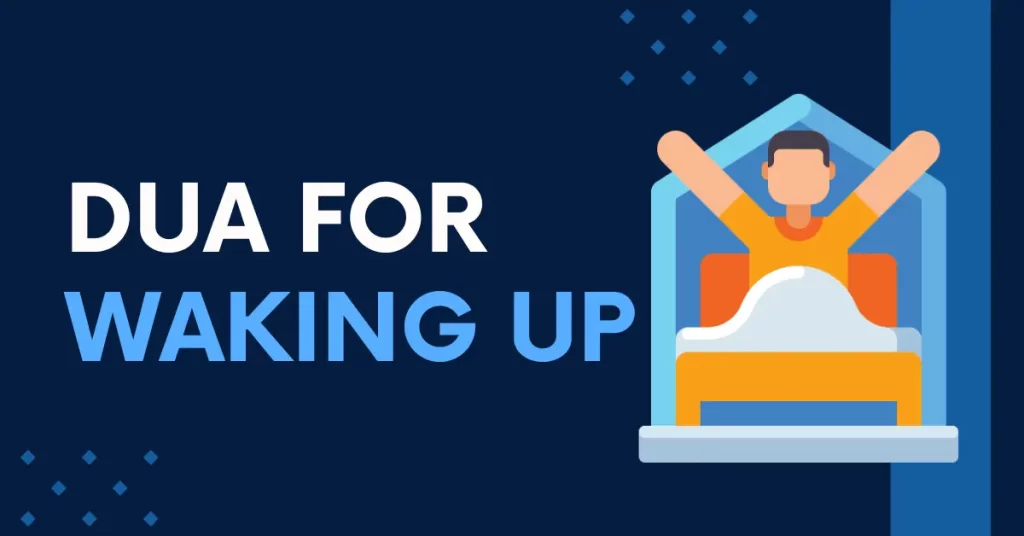Introduction
The daily routine of a Muslim starts with the remembrance of Allah, and what better way to start your day than with a heartfelt dua for waking up? In this blog, we will explore the significance, benefits, and methods of reciting the dua for waking up, along with relevant references from the Quran and Hadith.
Introduction to the Dua for Waking Up
Waking up every morning is a blessing that should never be taken for granted. As Muslims, it is important to acknowledge and thank Allah for granting us another day. The dua for waking up is a simple yet powerful way to start your day with gratitude and mindfulness.
Importance of Starting the Day with Dua
Starting your day with dua sets a positive tone for the entire day. It helps you align your thoughts and actions with Islamic teachings and reminds you of your purpose in life. Here are a few reasons why making dua upon waking up is important:
- Gratitude: Acknowledging Allah’s mercy in granting you another day.
- Protection: Seeking Allah’s protection from evil and harm throughout the day.
- Guidance: Asking for guidance to make the right decisions and perform good deeds.
The Specific Dua for Waking Up
The dua for waking up is simple and easy to memorize. Here is the specific dua:
“Alhamdulillahilladhi ahyana ba’da ma amatana wa ilayhi nushur.”
Translation: “All praise is for Allah who gave us life after having taken it from us and unto Him is the resurrection.”
References from Quran and Hadith
Quranic References
While the specific dua for waking up is not directly mentioned in the Quran, the general concept of remembering Allah upon waking is supported. One such verse is:
“And remember your Lord within yourself in humility and fear and without being apparent in speech – in the mornings and the evenings. And do not be among the heedless.” (Quran 7:205)
Hadith References
The dua for waking up is derived from various hadiths, emphasizing its authenticity and importance:
- Sahih Bukhari: Narrated Hudhaifa: When the Prophet (PBUH) went to bed at night, he would say, “Bismika amutu wa ahya” (With Your name I die and I live). And when he woke up, he would say, “Alhamdulillahilladhi ahyana ba’da ma amatana wa ilayhi nushur” (All praise is for Allah who gave us life after having taken it from us and unto Him is the resurrection).
- Sahih Muslim: Hudhaifa and Abu Dharr reported: When the Messenger of Allah (PBUH) went to bed, he said: “With Your name, O Allah, I live and die.” And when he woke up, he said: “Praise be to Allah who has brought us back to life after He made us die, and unto Him is the resurrection.”
Benefits of Reciting the Dua for Waking Up
Reciting the dua for waking up comes with numerous spiritual and psychological benefits:
- Spiritual Awareness: It increases your consciousness of Allah and His blessings.
- Mindfulness: It sets a positive, mindful tone for the day.
- Mental Peace: It brings a sense of peace and reassurance, knowing that you are under Allah’s protection.
How to Incorporate the Dua into Your Morning Routine
1. Memorize the Dua
Start by memorizing the dua. Repeat it several times a day until you can recite it effortlessly upon waking.
2. Make It a Habit
Integrate the dua into your daily routine. As soon as you open your eyes, let your first words be the dua. This will help you develop a habit of starting your day with the remembrance of Allah.
3. Reflect on Its Meaning
When reciting the dua, reflect on its meaning. Think about the blessing of life and the opportunities that come with a new day.
4. Teach It to Your Family
Encourage your family members, especially children, to learn and recite the dua. This will instill a sense of spirituality and gratitude in them from a young age.
Common Questions about the Dua for Waking Up
1. Why is it important to recite the dua for waking up?
Reciting the dua for waking up helps you start your day with gratitude and mindfulness, seeking Allah’s protection and guidance for the day ahead.
2. Can I recite the dua in English?
While it is preferable to recite the dua in Arabic, understanding its meaning is also important. You can start by reciting it in English while you are learning the Arabic version.
3. Is there a specific time to recite the dua?
The dua should be recited immediately upon waking up, before engaging in any other activity.
4. What if I forget to recite the dua upon waking?
If you forget to recite the dua immediately upon waking, you can still recite it as soon as you remember. The intention and effort are what count.
Conclusion
Starting your day with the dua for waking up is a beautiful way to express gratitude to Allah and seek His blessings for the day. It not only aligns your actions with Islamic teachings but also brings mental peace and spiritual awareness. By incorporating this simple yet powerful dua into your daily routine, you can transform your mornings into moments of mindfulness and thankfulness.
Remember, every new day is an opportunity to get closer to Allah and fulfill your purpose in life. Let the dua for waking up be the first step in your daily journey towards spiritual growth and success.

